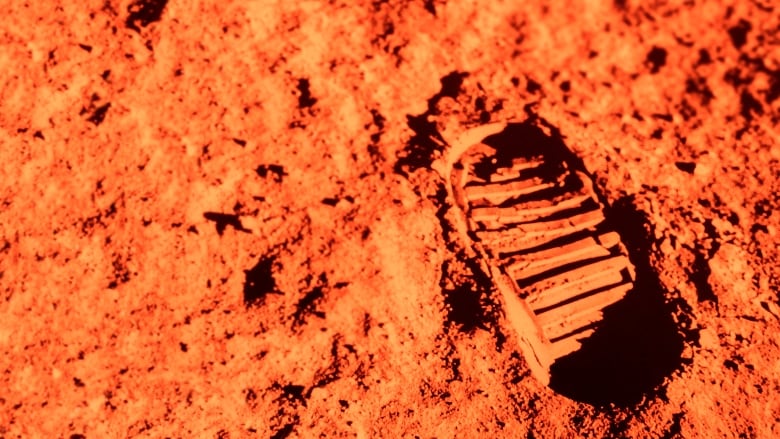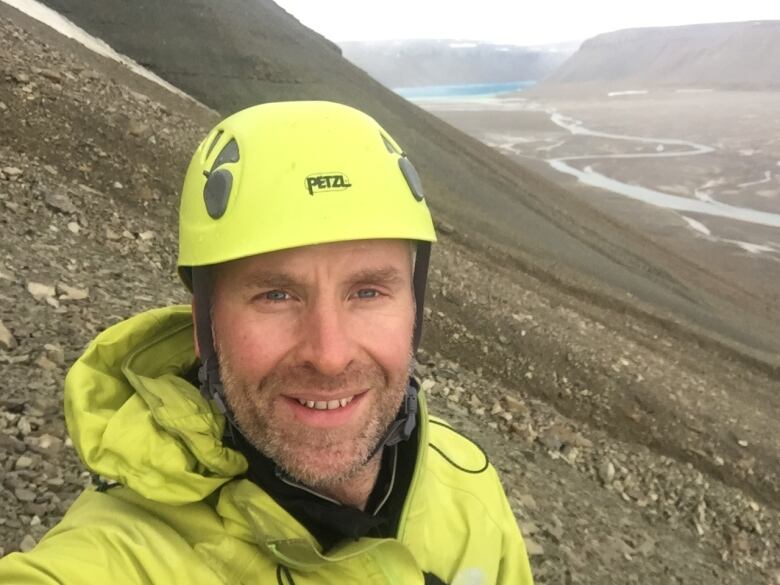Canadian scientists help prepare a path to Mars
Research by Canadians is advancing knowledge about the planet closest to our own

If humans one day set foot on Mars, Canadians will have contributed to the science that helped make it possible.
As Canadians, we're not known for bragging, but there are many Canadian scientists and engineers who have contributed greatly to our understanding of Mars and who are preparing the path for humans to one day settle on its dusty surface.
- Elon Musk reveals plan to get humans to Mars within 10 years
- Mars-bound astronauts could develop 'space brain'
Last week, for example,NASA announced the discovery of an ice deposit as voluminous as Lake Superior. The lead author of the paper was Cassie Stuurman, a Canadian currently with the University of Texas.

Thedeposit is estimated to contain about 50 to 85 per cent water and ranges in thickness from about 80 metres to 170 metres. As well, it's not too far below the surface about one to 10 metres and is in the planet's mid-latitude region, an area where it's easy for spacecraft to land.
Plainly put, it would bea great location for humans to utilize as a source of water on the Red Planet.
"We're going to need water resources if we send astronauts to Mars," said Stuurman.
Gordon (Oz)Osinski of Western University in London, Ont.,was a co-author of the paper. Among other hats he wears, he's the acting director for the university's Centre for Planetary Science and Exploration. His research takes him to theArctic wherehis findings are a guideto what we might expect to find on Mars.
Mars is the end destination.- Gordon (Oz)Osinski, Western University
His study of the Arctic helped form the basis for the new discovery of ice on Mars. Planetary scientists generally believe that the planet once had flowing water. But the lingering question has been: Where did it go?
"It either went up into space and is lost forever or went into the ground," Osinski said.

The findings are exciting to Osinski. It holds great promise for the future.
"It is where we're going," he said. "Mars is the end destination."
Robotic reach
Canada's most famous contribution to the space program is undoubtedly the Canadarm (thoughsome may argue that it's Chris Hadfield). And robotics is something that we do extremely well.
"Thishas been the Canadianmodel: to contribute instruments to otherlead missions," said Richard Lveill, adjunct professor at McGill University's department of Earth and planetary sciences.Lveillhas done extensive research on Mars, with a focus on geology, and is currently working in partnership with the Canadian Space Agency (CSA) and NASA analyzingthe composition of Mars.
One of the instruments he relies on is theCanadian-built APXSinstrument (alphaparticle X-ray spectrometer) aboard the Mars rover Curiosity, developed by the CSA, the University of Guelph, and MDA Space Mission here at home.
Canadianshaveplayed a role inthe Mars Science Laboratory (MSL) missions, including with Phoenix and Curiosity.
"There are Canadians who are directly involved in the MSL mission with Curiosity, for the past four years and even before that," Lveillsaid. "And there are other people who are just analyzing data from Mars from various missions."
Then there are analogue missions taking place missions that mimic conditions that may be found in other environments, such as Mars or the moon.
At the beginning of November, students and researchers from Western University and McGillUniversity spent more than two weeks in Utah in an analogue Mars sample return mission. It's a training mission designed to help train people here on Earth to use rovers to collect a sample from the planetand then send it back to Earth.
Moving ahead

Two Canadians, Livio Tornabeneof Western University and Ed Cloutis from the University of Winnipeg, will be investigators on two separate studies with the mission.
Although Canadians continue to be involved in space exploration even if it means piggybacking on the missions of other countries some think we could be doing more.
"I think there are major academic contributions coming out of Canada," Stuurman said. However, she added that she'd like to see more investment from government to providenewly trained academics with jobs.
In June 2016, the new Liberal government announced the development of the Innovation Agenda that will help guide the future of science and technology. Included in that was the opportunity for the Canadian Space Agency to provide a plan for a new vision. Already this year, the agency announced a call for new astronauts.
But looking ahead, it's clear that it's a new world when it comes to space exploration.More private companies are involved, as well as more countries such as India and China. And Canada can continue to play a major part in space exploration.
"You know what?Canada does what it does well,"Stuurmansaid.












_(720p).jpg)


 OFFICIAL HD MUSIC VIDEO.jpg)
.jpg)



























































































